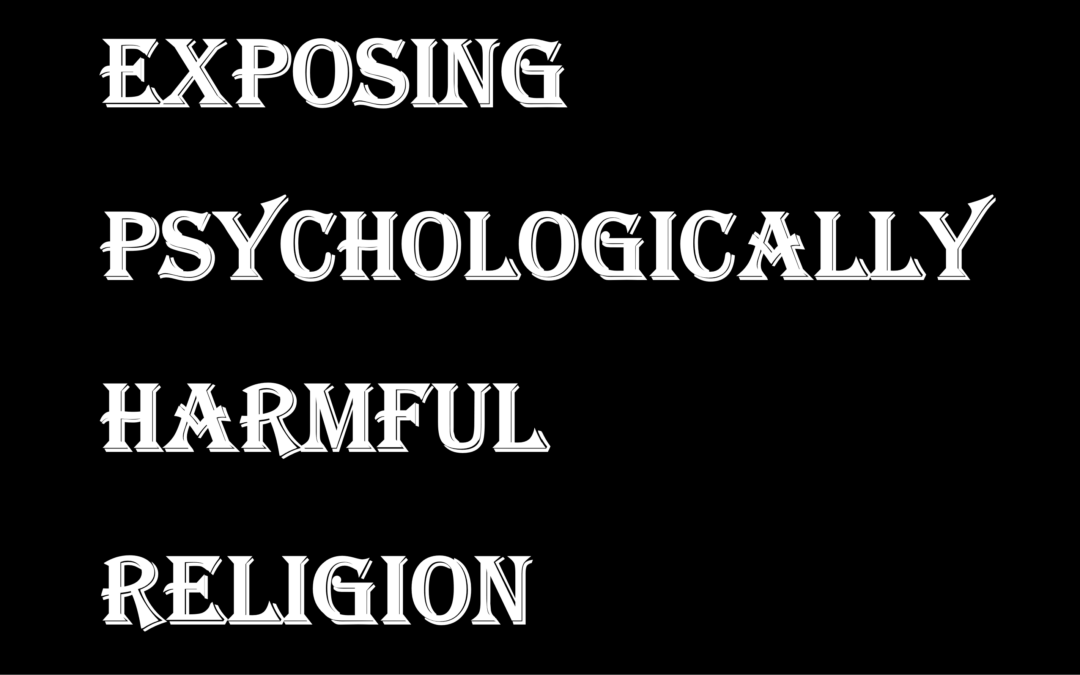
The Atlanta Shooter and Psychologically Harmful Religion.
Many times the role of a pastoral counselor is to point out and lift up spiritual concerns hidden by cultural or psychological trappings. At other times, it is to call to task errors and abuses of religion which have gone astray and become abusive of mental health or to help those who have suffered abuse from harmful religious practices or clergy misconduct to heal. The latter is the nature of our discussion today.
The recent murder of Asian women in Atlanta has brought attention to the growing number of attacks against Asian-Americans. There is another aspect of this slaughter, however, which must not be overlooked : the harmful influence of the alleged shooter’s religion. More specifically, I believe that the conservative church’s teachings about sex and women played a significant part in the murderer’s enraged emotional state . The church’s ignorant and outdated attitudes about…

Understanding and Coping with “Controlling” People.
Many have commented about the coarsening of our society and the decline of basic civility in politics and in every day life. Psychologically, this change in public decorum correlates with the complexification of life and a greatly reduced sense of control that people experience over there own lives.
Nowhere is the loss of control more painfully experienced than in intimate relationships and marriage. Indeed, one of the most common complaints of couples is that they feel that their partner is too “controlling”. Here are some important facts about our needs for control and some tips for dealing with controlling people:
1) No one has the right to try to control their partner.
2) Attempts to control are signs of anxiety and panic.
3) When in a state of panic, a person is not in touch with their cortex and thus he/she can not think reasonably.
4) It is not helpful or productive to attempt to struggle with someone who is in a panicked state.
5) Only when the experience of anxiety has been lowered can a productive conversation and respectful negotiations to reach mutually agreeable solutions take place .

A Reasonable Approach for Discussing Masturbation and Pornography: Part 1
Despite all of the research and medical science, discomfort about masturbation continues especially among older conservative Christians who view it as immoral and sinful. Indeed , the harsh and threatening lessons regarding masturbation learned in childhood have created deep feelings of shame are hard to shake. Further, the anti-forces and especially the evangelicals and Mormons (who also oppose women’s and LGBTQ rights) are still at work. In recent years there have been anti-masturbation campaigns and political candidates who have who have falsely equated and linked masturbation with serious offenses such sex abuse, human trafficking, and child pornography . Others have warned that masturbating will prevent you from being able to love or to function sexually with your spouse or even … going to Heaven. With a view of history it is easy to see why the guilt and shame surrounding masturbation is unnecessary. Many people live under the false impression that, if they masturbate to an erotic image, they are mentally ill or addicted to pornography. It is indeed liberating for these folks to discover that masturbation is normal and that it does not poes a medical risk.
It is also important for people of faith to understand masturbating does not conflict with being a Christian. Just like with other social issues, Christianity is split. The harsh and intolerant views regarding masturbation express only the views of fundamentalist thought and not the only or even main outlook of Christianity .

Don’t Let this happen to you: Tips for Preventing the Romantic Doldrums
Research reveals that many couples are not having sex because they are too busy working. The stress of work and the worry about finances has become so distracting that people have fallen into some bad habits known as the Romantic Doldrums. For example, if...
Understanding Leisure as an Essential Part of Self-Care
Just back from vacation, I thought some good words about leisure were in order: Inadequate leisure and vacation time is a major source of emotional disorders in America. Too many Americans don’t know how to relax and simply don’t take enough time for...
